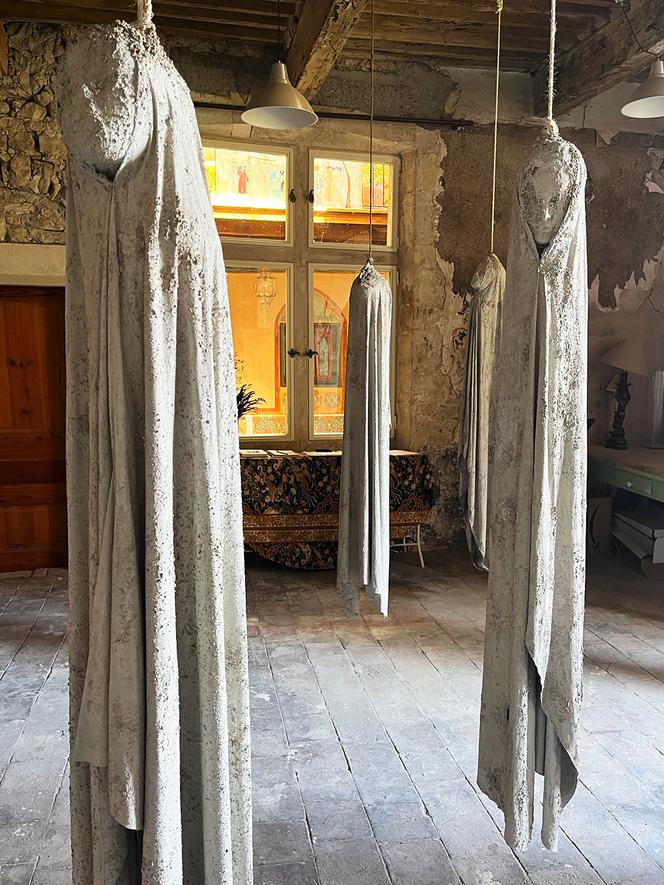


She is still in shock, stunned by the decision; Once again, she can sense the "shadow" floating over her, a shadow that haunted her all her life, and from which she thought she would finally be freed by leaving Iran. Three years ago, Sadaf Ahmadi emigrated to Sweden with her husband. Since then, the artist born in Tehran in 1985 has lived in Borås, a town of 114,000 inhabitants, some 60 kilometers east of Gothenburg. On September 16, the first anniversary of Mahsa Amini's death in Iran, she was due to present two exhibitions at the town's cultural center. But, 10 days before the opening, the municipality decided to cancel one of them, for security reasons.
The banned works consist of a dozen veiled women's faces, sculpted in concrete and suspended from the ceiling by a wire. In an interview with local newspaper Borås Tidning, director of culture Ida Burén justified her decision by citing "the general security situation" in Sweden. On August 17, intelligence services raised the terrorist alert level from three to four on its five-point scale. A few days earlier, Al-Qaeda had encouraged Muslims in Europe to "take revenge" against the Scandinavian kingdom for the Qurans burned there since the start of the year.
Against this backdrop, explained Ida Burén, the fact that the exhibition had "religious themes, since the garment is a Muslim one, could lead to the work being interpreted in the same way as, or associated with, the burning of the Quran." Her security colleagues had also noted "the explosive potential" of the work, she said.
Reached by telephone, Ahmadi confided her sadness and anger. "I felt like I was back in Iran. It's the same censorship, justified by the same arguments, according to which certain things are not acceptable, because they may hurt believers. Many Iranian artists are in prison because they have exercised their freedom of expression and defied this censorship. But I didn't expect such a reaction from Sweden."
In Iran, Ahmadi studied film, then worked as an actress and made several short films in which she denounced the violation of women's rights. In exile in Sweden, unable to understand the language of her host country, she decided she would have to find another artistic language. While working as a caretaker at a school in Borås, she began to take an interest in concrete, a material she loves, without really being able to explain why, although she is aware of its symbolic power.

Coincidentally, just before his arrival in Sweden in November 2019, former Iranian prosecutor Hamid Nouri was arrested in Stockholm. In May 2022, he was sentenced to life imprisonment for his part in the massacre of thousands of political prisoners in Iran in 1988. She then recalled that the victims were not allowed a funeral: "Their bodies were thrown into mass graves covered in concrete."
You have 43.7% of this article left to read. The rest is for subscribers only.
